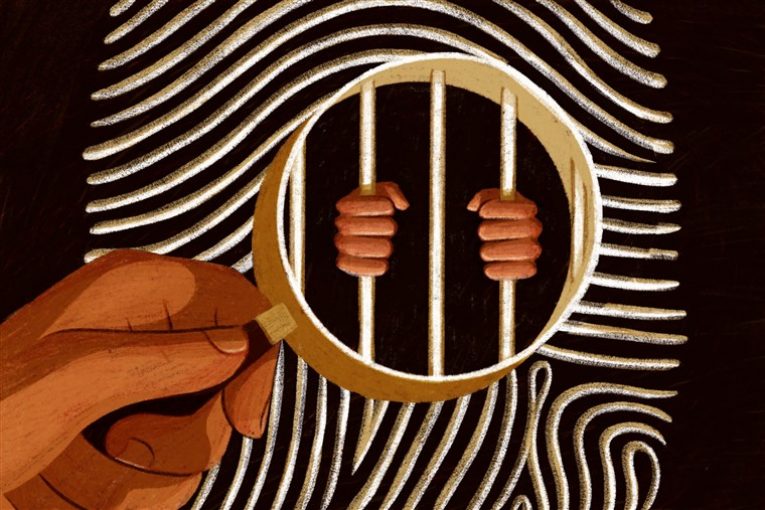

SB 938 would ensure expert testimony used as admissible evidence in court has sound methodology and would provide opportunity to challenge wrongful convictions
(From Press Release – Senator Wiener) – Today, Senator Scott Wiener (D-San Francisco) introduced new criminal justice reform legislation, Senate Bill 938. This bill would amend the standards used for evaluating expert testimony and forensics in court pre- and post-conviction. Faulty forensic and scientific evidence, provided by expert witnesses, are the second most common reason that individuals are wrongfully convicted for crimes they did not commit. Today, courts have discretion over which expert testimonies are admissible. Studies show that courts accept most forensic science and expert testimony without sufficient scrutiny, leaving significant room for imprecision and human error. This error leads to the high rate of false convictions. Expert testimony that fails to rely on sound logic should not be considered expert testimony at all.
SB 938 additionally strengthens the grounds on which individuals wrongfully convicted of a crime based on unreliable expert testimony can seek post-conviction relief. This provision will help exonerate innocent people across California.
This bill will also help ensure that expert witnesses are not making baseless claims in court, and are backing up testimony with evidence based on valid methodology, research, peer-reviewed  studies, and scientifically sound data.
studies, and scientifically sound data.
Recent studies from the National Academy of Science (NAS) and cognitive neuroscientist Dr. Itiel Dror have proven that fingerprint analysis, often part of expert witness testimony, is highly unreliable and subject to cognitive bias. The NAS also looked at what is known as the “CSI effect,” where jurors tend towards “unrealistic and preconceived notions about the availability and precision of forensic evidence in criminal trials” based on portrayals of expert witnesses in popular culture.
SB 938 is part of a larger slate of the California Innocence Coalition’s reform bills. Previously, Senator Wiener authored SB 923, which ensures that law enforcement must use evidence-based procedures for eyewitness identification. Eyewitness misidentification is a leading contributor to wrongful convictions proven with DNA evidence. Before SB 923 was signed into law, California had no statewide best practices for eyewitness identification and there were no evidence-based standards in place.
SB 938 is sponsored by the California Innocence Project, the Loyola Project for the Innocent, and the Northern California Innocence Project.
“When innocent people are convicted of crimes they didn’t commit, it’s a terrible miscarriage of justice and also means the guilty go free,” said Senator Wiener. “SB 938 takes us one step closer to ensuring that our criminal justice system is both fair and accurate. Convicting innocent people is exceptionally harmful and undermines public safety. We need to move away from baseless expert testimony, and this legislation, by requiring more rigorous support, will help.”
“SB 938 is crucial legislation in that it helps prevent wrongful convictions by ensuring that a jury hears only reliable and logically sound expert opinions,” said Nikki Herst-Cook, Staff Attorney and Policy Liaison at Loyola Project for the Innocent on behalf of the California Innocence Coalition. “It also expands a necessary path for people who were wrongfully convicted due to questionable forensic science to fight for their innocence in court. That’s why our coalition is proud to sponsor the bill.”
“Wrongful convictions cause concentric circles of harm: to the wrongfully convicted and their communities, to the crime victims who were told a false story and face re-traumatization, to the jurors who unwittingly participated in the injustice, and to the integrity of the system as a whole. I applaud Senator Wiener’s efforts to safeguard against wrongful convictions by keeping unreliable science out of the courtroom,” said San Francisco District Attorney Chesa Boudin.

Nice in theory, but setting up a further system of appeals? Questioning fingerprints? I don’t know that passing a new law is a solution, or just a jobs program for lawyers.
The biggest problem has been that courts have allowed in a whole bunch of so-called expert testimony that is based on flawed science. Often you will see judges allow expert testimony in and simply allow the jury to decide if it’s relevant – the problem is that the jury is often not qualified to make that assessment. And they tend to give it more weight than it warrants. This law attempts to address that by giving more power to judges to prevent such testimony from coming in rather than allowing the jury to decide.
And the other problem is once someone is convicted based on flawed testimony, you would think it’s easy to throw it out on appeal – and that turns out not to be true either. This law appears to level that playing field as well.